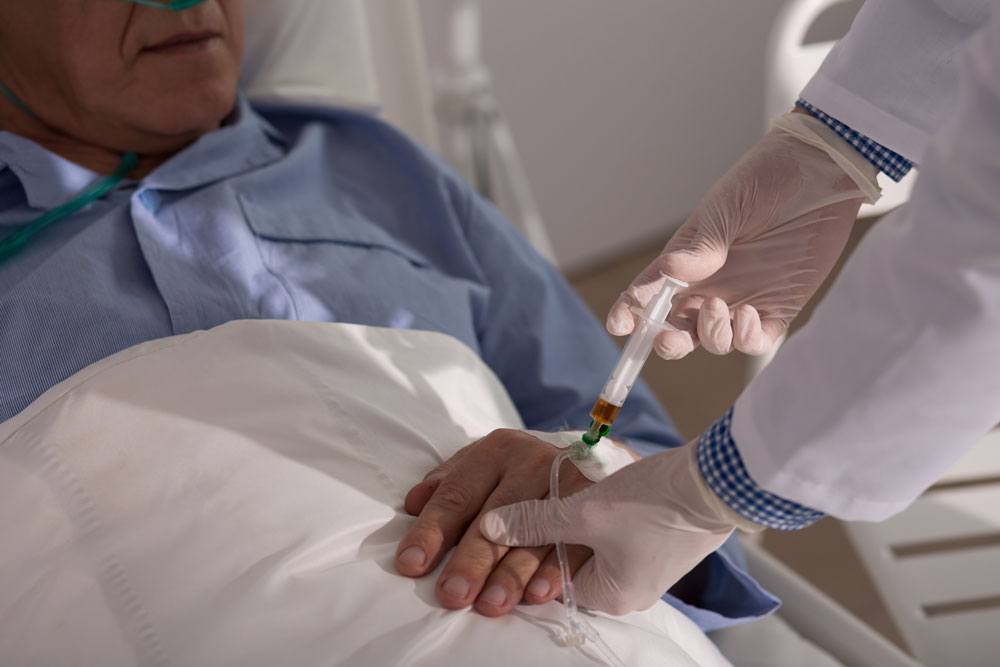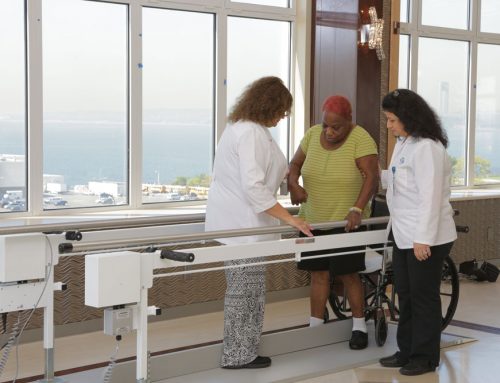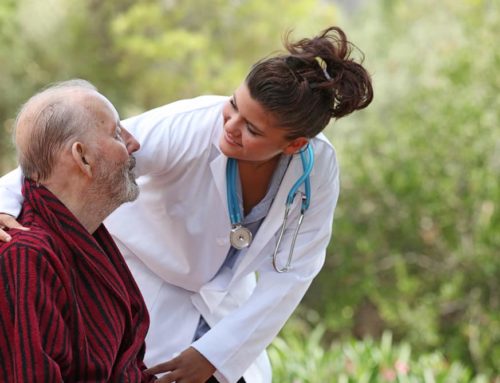If a patient’s kidneys begin to fail, renal failure treatment is required immediately.
Excessive exposure to toxins, including alcohol, some medications, or poisons in the environment can all cause kidney failure. So can certain diseases, severe dehydration, and physical damage to the organs.
The symptoms of kidney failure vary depending on the stage of kidney failure that you’re in. End-stage kidney failure is marked by vomiting and nausea, itchy skin, and trouble breathing. Because the symptoms of kidney failure can be subtle at first, they are often missed by the patient and his or her family at the beginning. As the symptoms and disease progress, they become more obvious.
End-stage kidney failure requires dialysis as part of any treatment received. In dialysis, the patient is usually connected to a machine that performs the same functions as a kidney: the removal of toxins from the blood.

Haym Salomon Nursing Home
At Haym Salomon Home for Nursing and Rehabilitation in Brooklyn, NY, we offer the very best in pre- and post-dialysis care for patients with end-stage renal failure. Consistent and careful monitoring is combined with caring attention to detail to ensure that each patient receives the treatment that his or her family knows they deserve.
Dialysis comes in two forms: hemodialysis and peritoneal dialysis. In the former, the patient is connected to the aforementioned machine, which cleans the blood and returns it to the body. It usually takes between three and four hours. In the latter, a solution is placed in the patient’s abdomen and later removed using a catheter. It’s often done overnight while the patient sleeps.
Dialysis, while not painful in and of itself, puts stresses and strains on the body that the patient may not be accustomed to. This is especially true for patients with pre-existing conditions that exacerbate or lead to kidney failure.
Medications
People with comorbid conditions, like diabetes or hypertension, can benefit from drugs used to treat these diseases. Drugs like ACE inhibitors, or angiotensin-converting enzyme inhibitors, and ARBs, or angiotensin receptor blockers, can help treat these conditions.
Some vaccines can prevent complications of end-stage kidney disease (also called end-stage renal disease, or ESRD). They should be administered only under the appropriate medical supervision of a professional who is aware of the patient’s underlying conditions.
Nursing care
Constant monitoring is required to ensure the health of a patient with end-stage renal disease. Consistently-taken blood-pressure readings must be completed. If hypertension is present it must be monitored religiously. The site of dialysis application must be sanitized and maintained and the patient’s posture must be consistently changed (from lying, to sitting, to standing) to prevent infection. Laboratory and diagnostic results must be quickly read and interpreted in order to be of use to the patient.
Importantly, nutritional interventions are frequently required and, in order to be effective, must be monitored to ensure compliance with medical directives and instructions. Patients are sometimes reluctant to undertake the low-sodium and low-potassium diet required for patients in end-stage kidney disease. A health practitioner’s supervision can be irreplaceable.
This content comprises informative and educational resources only and can not be considered as a substitute for professional health or medical guidance. Reliance on any information provided in this article is solely at your own risk. If you have any inquiries or apprehensions about your medical condition or health goals, talk with a licensed physician or healthcare provider.






Leave A Comment